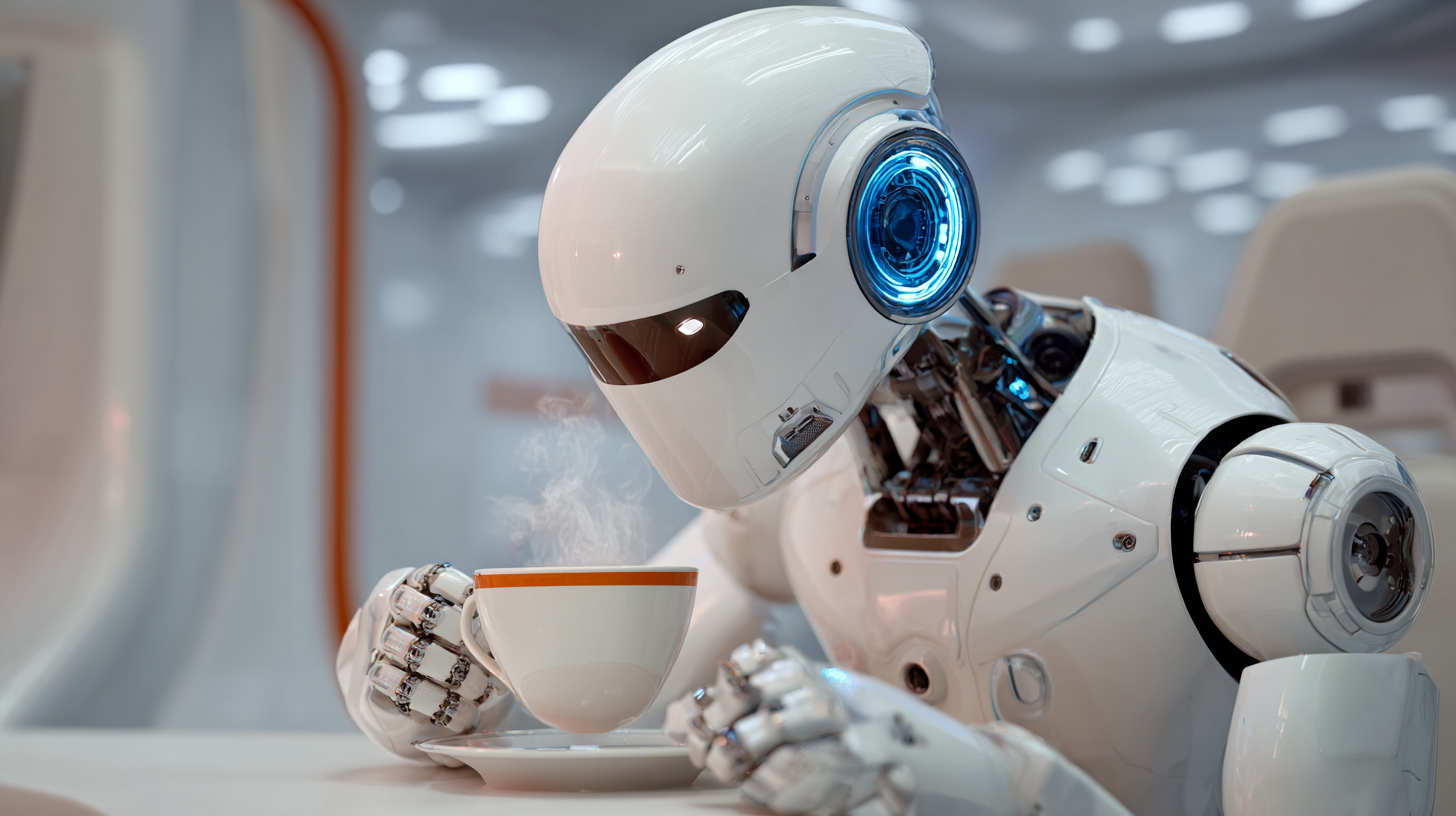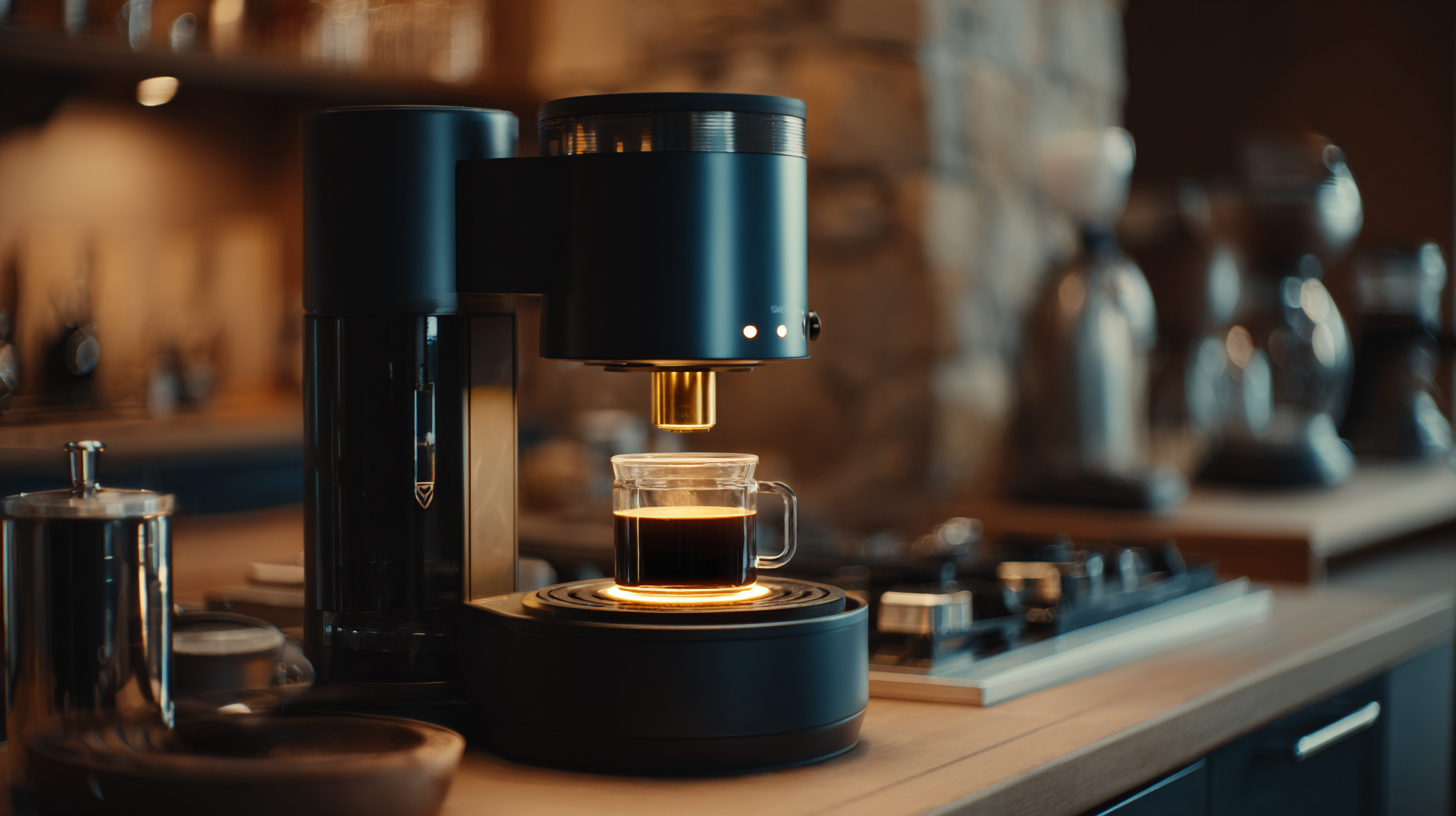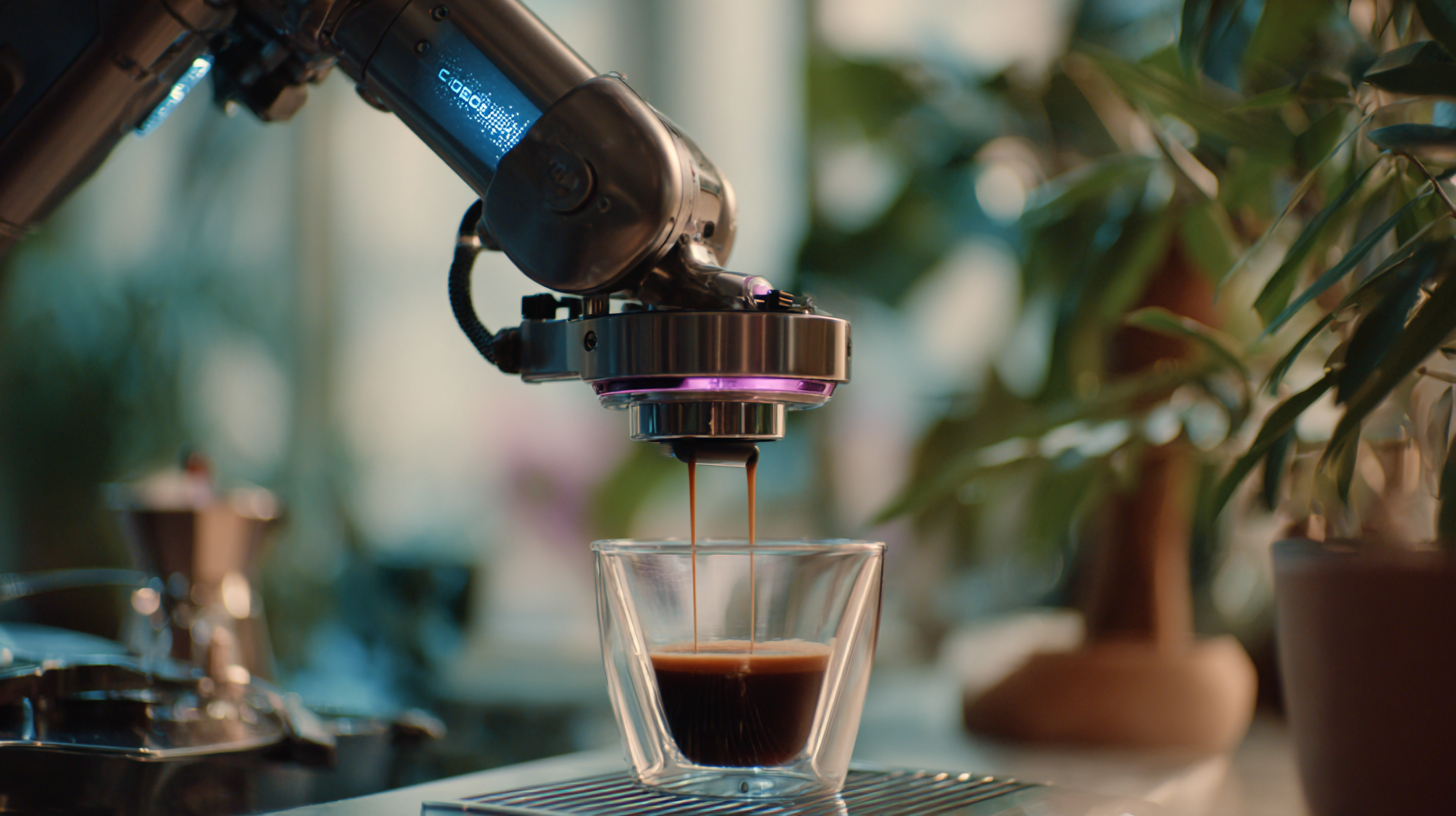Natural beauty for your favorite space
The Future of Brewing Experience with Coffee Robots Revolutionizing Your Daily Brew
As the coffee industry continues to evolve, the integration of technology promises to redefine brewing experiences for coffee enthusiasts and casual drinkers alike. According to a recent market analysis by Research and Markets, the coffee robotics market is projected to grow at a CAGR of 20% over the next five years, driven by advancements in AI and automation aimed at enhancing consumer experiences. Amidst this transformative landscape, the emergence of the Coffee Robot is set to revolutionize how we enjoy our daily brew, merging precision with personalization.
Renowned coffee industry expert Dr. Emily Cass, a leading advocate for technological integration in beverage preparation, states, "The Coffee Robot not only ensures consistency in brewing but also opens up endless possibilities for customization, allowing users to experiment with flavors like never before." As robots become more adept at replicating the art of brewing, we can anticipate a future where every cup of coffee is tailored to individual preferences, elevating the ritual of coffee drinking into an immersive experience replete with choice and creativity.
The adoption of Coffee Robots signifies a shift towards a more sophisticated brewing process that enhances convenience and efficiency while maintaining the integrity of the coffee itself. As consumers increasingly seek both quality and convenience, the advent of robotic brewers marks a significant milestone in the coffee industry's journey towards innovation and excellence.

The Rise of Coffee Robotics: A Look at Market Growth and Trends
The coffee robotics market is seeing remarkable growth, driven by advancements in collaborative robot technology and increasing consumer demand for on-demand beverage services. By 2024, the global food service market is projected to reach a staggering $348.658 billion, with expectations to surge to $682.186 billion by 2032. This trajectory reflects an expanding interest in automation within the coffee sector, as evidenced by the successful unveiling of coffee robots at the recent Zhongguancun Forum, where robots crafted and delivered beverages with unprecedented efficiency.
In China, the collaborative robot market commands over 90% market share, positioning itself as a leader in the industry. As collaboration robots penetrate various downstream markets, the scope and scale of their application in coffee services are expected to grow significantly. Notably, recent reports indicate that the Chinese market for collaborative robots is set to expand, reflecting a burgeoning trend towards intelligent, automated systems that enhance consumer experiences in coffee shops and beyond. This alignment with technological innovation is essential for businesses aiming to stay competitive in a rapidly evolving food service landscape.

Enhancing Flavor Profiles: How AI is Transforming Coffee Brewing Techniques
Artificial intelligence is at the forefront of transforming coffee brewing techniques, enhancing flavor profiles beyond traditional methods. With machine learning algorithms, coffee robots can analyze various parameters such as grind size, temperature, extraction time, and water quality to optimize the brewing process. By statistically evaluating vast amounts of data from both consumers and coffee bean characteristics, these intelligent systems can create personalized brews tailored to individual preferences, ensuring a consistently high-quality cup of coffee every time.
Moreover, AI-driven coffee machines can also adapt to subtle changes in environmental conditions, such as humidity and altitude, which can significantly affect the final flavor. They possess the capability to collaborate with sensory input devices that measure taste and aroma, providing feedback to further refine brewing parameters. This amalgamation of technology and craftsmanship not only enhances the complexity of flavors in each brew but also encourages coffee enthusiasts to explore diverse coffee beans and techniques, ultimately redefining the coffee brewing experience.
Consumer Preferences: Data-Driven Insights into Automated Brewing Experiences
As the coffee industry embraces automation, understanding consumer preferences becomes paramount. Data-driven insights reveal a growing demand for personalized brewing experiences that cater to individual tastes. Users increasingly leverage technology to attain their ideal cup, with robots capable of adjusting brew times, temperatures, and even grind sizes based on specific preferences. This transformation not only enhances user satisfaction but also fosters a deeper connection between the consumer and the coffee they love, making each cup a unique experience.
Moreover, the rise of coffee robots has redefined convenience, allowing for seamless integration of brewing into daily routines. Consumer data suggests a significant shift towards automated systems that offer both quality and efficiency. As people seek balance in their busy lives, the ability to prepare high-quality coffee at the touch of a button is an appealing prospect. By harnessing data on brewing habits, brands can innovate and adapt their offerings, ensuring that every aspect of the brewing process aligns with the evolving desires of their customers.
The Future of Brewing Experience: Coffee Robots and Consumer Preferences
Cost Efficiency and Sustainability: The Economic Impact of Coffee Robots
The landscape of coffee brewing is shifting dramatically with the introduction of coffee robots, a development that has significant implications for cost efficiency and sustainability in the industry. As labor costs rise and consumer preferences evolve toward more personalized experiences, coffee robots offer an economically viable solution. According to a recent IDC report, enterprises are projected to allocate $307 billion on AI solutions in the coming year, amplifying the push towards automation in food and beverage sectors, including coffee. This investment not only enhances operational efficiencies but also meets the growing consumer demand for high-quality, consistent brews, optimizing the overall brewing experience.
In addition to economic benefits, the integration of coffee robots supports sustainability objectives. The global food packaging industry, facing immense pressure from environmental challenges, has seen a pivot towards innovative solutions that minimize plastic use and enhance recyclability. The introduction of precision brewing technologies not only reduces waste from over-brewing or improper ingredient usage but also improves energy efficiency. With the increasing emphasis on sustainable practices, the coffee industry can align itself with broader environmental goals, contributing to a circular economy. As consumers become more environmentally conscious, the adoption of coffee robots will likely play a crucial role in shaping future brewing practices that are both economically sound and ecologically responsible.

Future Innovations: Exploring Upcoming Technologies in Automated Coffee Brewing
The coffee industry is undergoing a remarkable transformation through the advent of automated brewing technologies. According to a recent report by the National Coffee Association, around 55% of Americans are choosing coffee made at home, a trend that highlights the growing demand for convenience and quality. As consumers seek to replicate café-quality brews within their own kitchens, coffee robots are emerging as a game-changer in this space. These innovations not only simplify the brewing process but also ensure precision in every cup, allowing users to customize flavors, strengths, and even milk frothing techniques.
Looking ahead, technology is set to further enhance the coffee brewing experience. A study by Market Research Future predicts that the global smart coffee maker market will exceed $5 billion by 2025, driven by advancements such as IoT-enabled devices and machine learning algorithms. These smart machines can analyze user preferences and brewing habits, adapting to deliver a personalized coffee experience that evolves with consumer tastes. As automation and artificial intelligence continue to shape the industry, the idea of a ‘smart café’ at home is becoming a reality, promising coffee enthusiasts an unprecedented level of control over their daily brew.
